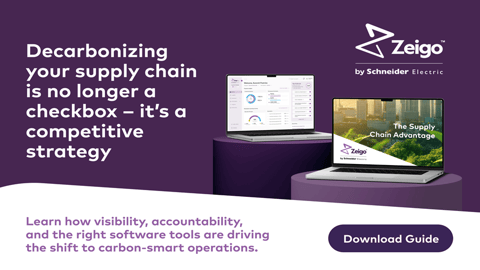Q&A: Mars Forms Climate Coalition with PepsiCo & McCormick
There’s no I in Team Green.
Like a number of consumer goods companies, Mars Inc. marked the days leading up to Earth Day with an announcement signifying a deeper commitment to advancing its sustainability goals. For the food and pet care company, this took the form via a new coalition that also includes PepsiCo and McCormick.
Known as the Supplier Leadership on Climate Transition (Supplier LoCT), and formed in partnership with sustainability consultancy Guidehouse, the group seeks to provide suppliers with resources to develop impact-reducing climate plans.
It will initially focus on helping suppliers understand the foundations of greenhouse gas (GHG) reductions in their own businesses, including how to calculate GHG footprints and set science-based targets. Mars has committed to reducing GHG emissions across its extended value chain by 27% by 2025 and 67% by 2050.
CGT checked in with Luc Beerens, Mars Inc. global sustainable sourcing director, to learn more about the Supplier LoCT and its goals for success.
CGT: What prompted Mars to form this coalition, and how does it intend to drive action through this group?
Beerens: As a global business with supply chains around the world, we recognize that a large portion of our emissions come from our extended supply chains. Engaging our suppliers on climate action is critical in order for us to meet our climate targets and make a meaningful impact.
Through the Supplier LoCT coalition, we’ll be working with our suppliers to equip them with the knowledge, resources and tools to develop their own science-based GHG reduction targets and climate action plans. This approach is a continuation of our #PledgeForPlanet initiative launched in 2019, when we first called on suppliers to set climate targets and sign on to The Climate Group’s RE100.
CGT: Given that sustainability has been a topic of conversation for some time in the industry, what is Mars leveraging in order to move beyond talking and really effect change?
Beerens: As part of our Sustainable in a Generation Plan, we’ve invested over $1 billion to transform our extended supply chains to mitigate our impact on the health of people and the planet.
We’re proud of the strong progress we’ve made to cut emissions in our direct operations, and as a result, are on track to hit our 2025 GHG reduction targets early. This has been a result of our transition to renewables in our direct operations — with 11 markets now using 100% renewable electricity, and over 54% of our electricity now coming from renewable sources. We have plans to switch to 100% renewable electricity in another eight markets by 2025.
Watch More From Mars: AI-Developed Maltesers Cake
But we recognize that the majority of emissions come from our extended supply chains — which is why partnership is so critical to driving the broad transformations needed to mitigate our impact on the climate. With creation of the S-LoCT coalition, we are leveraging our long-term supplier relationships and purchasing power and encouraging them to set science-based targets and accelerate change.
We will seek to further build our relationships with those suppliers who join us and come on board as partners through our Pledge for Planet initiative.
CGT: How is Mars leveraging data and analytics to measure and advance its sustainability progress?
Beerens: Many aspects of data collection, risk and footprint analysis are still manual tasks at the moment; however, we are moving to tools and processes such as Sourcemap, Ecovadis and satellite-based monitoring solutions to track our progress on different aspects of our environmental and social footprint.
We also believe that on-the-ground presence and involvement remains an important element in advancing progress towards our sustainability efforts.
CGT: What are some of the key metrics Mars is prioritizing?
Beerens: We use a set of leading and lagging metrics to measure the progress of our sustainability journey. As an example, we track the number of suppliers that have signed on to our Pledge for Planet initiative, but also measure our reduction in unsustainable water use and carbon savings.
CGT: How is Mars aligning its teams around these KPIs in order to effect change throughout the organization?
Beerens: At Mars, we see the importance of delivering “long term value” beyond profit. We believe that business can only be successful if it enables all of its partners — including the communities and environment in which it operates — to thrive.
That’s why we hold ourselves accountable for more than just financial performance. Through our Mars Compass, we measure the performance of the entire enterprise against four quadrants that include financial performance, quality growth, our positive impact on the world, and our ability to build trusted partnerships.
Sustainability KPIs, set out by Sustainable in a Generation Plan, are integrated in the objectives of each of our segments — Mars Wrigley, Mars Petcare, Mars Food and Mars Edge — as well as key functions such as procurement, manufacturing and product design.






